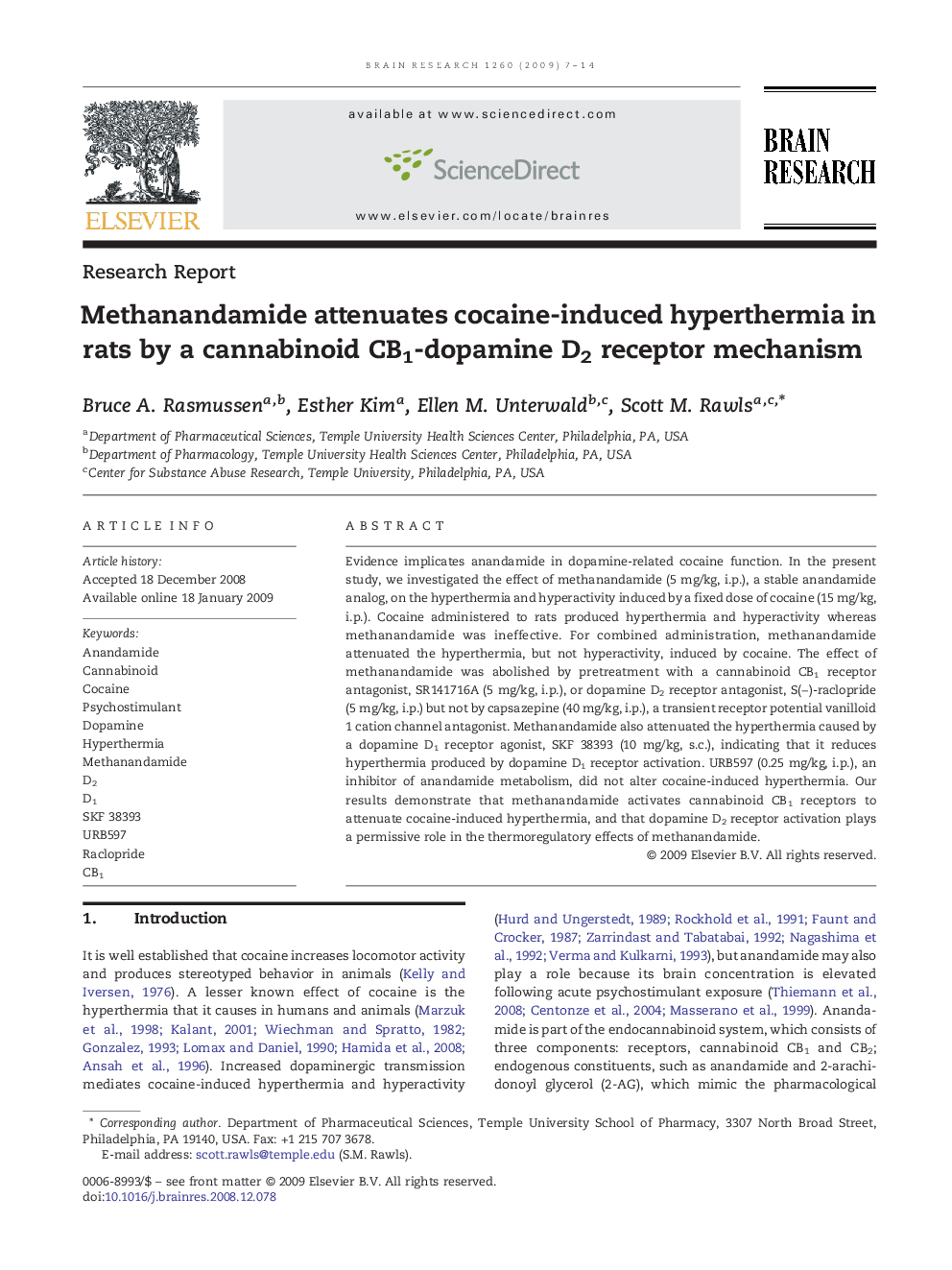| Article ID | Journal | Published Year | Pages | File Type |
|---|---|---|---|---|
| 4328445 | Brain Research | 2009 | 8 Pages |
Evidence implicates anandamide in dopamine-related cocaine function. In the present study, we investigated the effect of methanandamide (5 mg/kg, i.p.), a stable anandamide analog, on the hyperthermia and hyperactivity induced by a fixed dose of cocaine (15 mg/kg, i.p.). Cocaine administered to rats produced hyperthermia and hyperactivity whereas methanandamide was ineffective. For combined administration, methanandamide attenuated the hyperthermia, but not hyperactivity, induced by cocaine. The effect of methanandamide was abolished by pretreatment with a cannabinoid CB1 receptor antagonist, SR141716A (5 mg/kg, i.p.), or dopamine D2 receptor antagonist, S(−)-raclopride (5 mg/kg, i.p.) but not by capsazepine (40 mg/kg, i.p.), a transient receptor potential vanilloid 1 cation channel antagonist. Methanandamide also attenuated the hyperthermia caused by a dopamine D1 receptor agonist, SKF 38393 (10 mg/kg, s.c.), indicating that it reduces hyperthermia produced by dopamine D1 receptor activation. URB597 (0.25 mg/kg, i.p.), an inhibitor of anandamide metabolism, did not alter cocaine-induced hyperthermia. Our results demonstrate that methanandamide activates cannabinoid CB1 receptors to attenuate cocaine-induced hyperthermia, and that dopamine D2 receptor activation plays a permissive role in the thermoregulatory effects of methanandamide.
